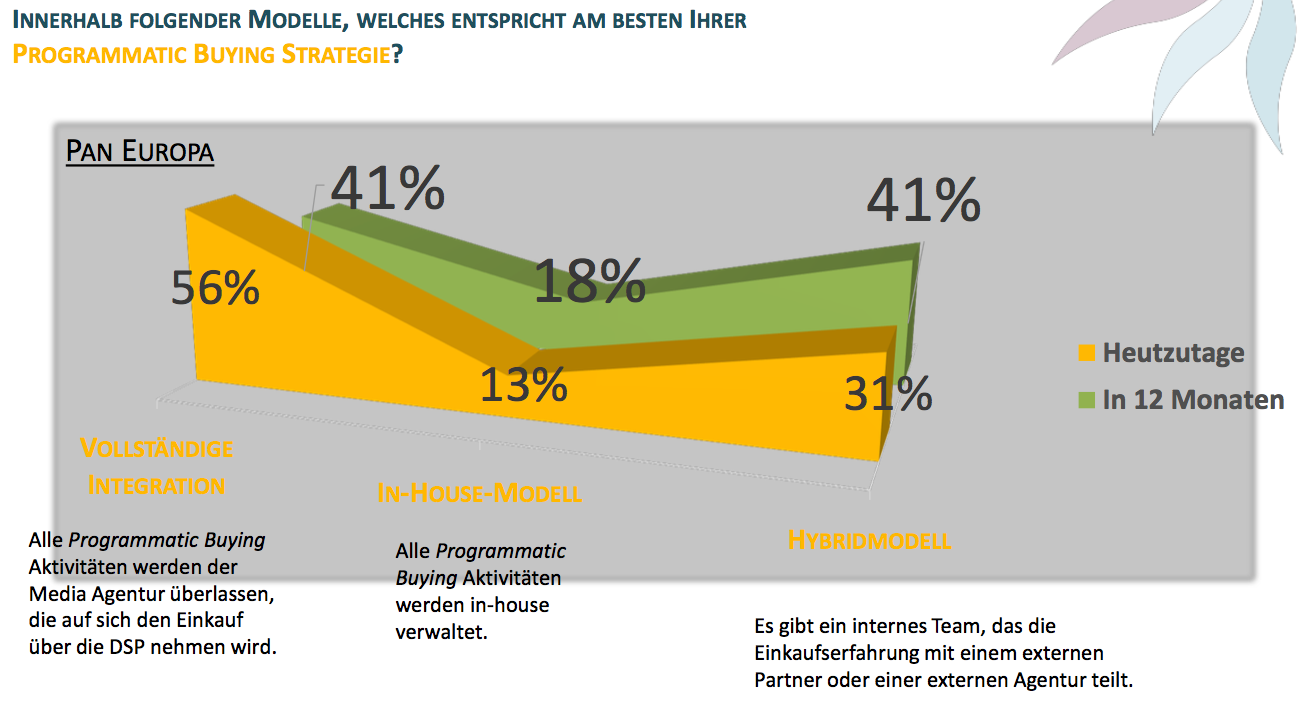Switzerland and Italy lag behind
In Switzerland, the level of knowledge about programmatic buying is still low compared to other European countries. This is shown by a study conducted by the TBS Group.

TBS Group and Lens Academy recently published a Europe-wide study regarding the impact of Programmatic Buying within the companies of six major countries (Werbewoche.ch reported).
The spread of Programmatic Buying, in the context of buying and selling advertising space, is undoubtedly one of the biggest changes in recent years. Initially limited to the online sector, Programmatic Buying has had such a strong resonance in recent years that it has revolutionized both traditional media such as radio, outdoor and TV, as well as the buying and selling processes of the entire sector.
The transition has been incredible. In 2012, about 5 billion dollars were invested in Programmatic Buying worldwide. In 2015, just three years later, investment was approximately $38 billion (Source: Zenith Optimedia/United Kingdom - Dec. 2015).This is a transformation that requires significant intellectual and organizational adaptability from market participants, as a large part of previously acquired competencies are being put to the test.
For a better understanding of the said changes and their impact on companies, TBS Group and Lens Academy have commissioned a Europe-wide study. The study is intended to help explore both the level of knowledge of advertisers about Programmatic Buying and to predict the possible future strategies. From said countries, nearly 1200 marketing/communication professionals participated in the study. Below is a brief overview.

State of knowledge
The study shows that today 65 percent of European respondents are already familiar with the term Programmatic Buying. In particular, France, Spain, and Germany are the countries with the highest level of knowledge, while in Switzerland, Benelux, and Italy, competence in the area of Programmatic is still rather low.

Investments
Among the respondents, more than 81 percent of advertisers invest in Programmatic Buying and 32 percent share that more than 21 percent of their budget is spent on digital advertising via Programmatic Buying. As previously stated, online is not the only medium where Programmatic Buying is being applied. More than 74 percent of respondents who use Programmatic Buying to buy their own digital campaigns are willing to apply this new technology to buy advertising space in radio, press and TV as well. Apart from that, the interest of marketing, media and communication managers in this new technology is getting stronger.


Critical factors
The factors that can be considered "critical" according to the respondents because they could have a negative impact on programmatic buying of advertising space include the following: Inventory quality, lack of quality, and guarantee to the appropriateness of the medium.

Business models
The technological developments based on programmatic buying have also brought about numerous changes within the framework of business models. Previously, there was a tendency to ask external media agencies to buy advertising space. 56 percent of advertisers share that they are leaning in the direction of a hybrid model (10 percent) or an in-house model (5 percent).


Conclusion
The study shows that the majority of European advertisers are already familiar with programmatic buying and related developments. Advertisers are now ready to use this technology when buying advertising space on any medium. The factors that are still considered "critical" are inventory quality, lack of transparency and guarantee regarding the appropriateness of the medium. The increasing interest in Programmatic Buying can be seen as an indicator of an increasingly pronounced ability to adapt to change. Advertisers are increasingly tending to adopt both 100 percent in-house models and models that involve close cooperation between media agencies and advertisers.
With over 10 million euros in sales per year for the European market, the TBS Group developed a communication software to support its clients in the development of new business (media print, web, radio, TV, advertisers, agencies, media owners, etc.).
This study was based on the principles of Lefac.com Data elaborated. It is a platform that shares everything about companies, structures, brands, advertising spendings, latest news and is available in Switzerland, France, Benelux, Germany, Italy, Spain and Portugal.
Lens Academy is a company specializing in the development of new technologies.








